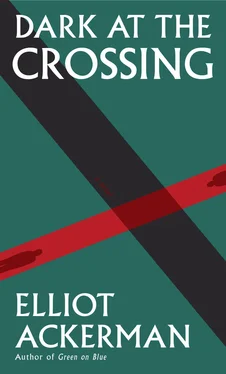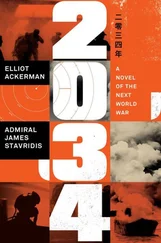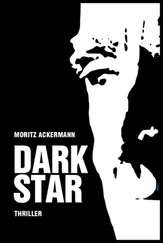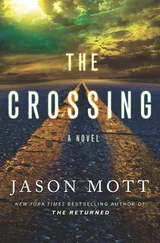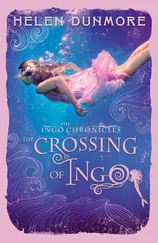Haris had listened to Amir’s version of the story quietly, thinking it a bit ridiculous. But unable to contain himself any longer, he now laughed openly. “How can two people carry a donkey?”
“It’s really not that difficult,” explained Amir. “His hindquarters would rest here.” He placed his hands on Haris’s shoulders. “Then I would drape his front over my shoulders, grasping his forehoofs. Quite simple.” He lit another cigarette and offered one to Haris, who waved it away as they proceeded toward Yusuf Bulvari. “Now let me finish.”
“Please.”
“After trudging along in this way, they managed to reach Shamer. Admittedly, when they arrived, carrying Cause on their backs, they looked very strange. When the villagers who relaxed in the many cafés around the market saw the donkey riding two people, they began to laugh, and their laughter increased until it was louder than this storm. The kindhearted old man became unhinged. ‘What do you shirkers find so amusing!’ he screamed. With raised fists, he kicked over a few café tables. All the while, the boy hid behind Cause, for shame. Then a fat man with the loudest laugh of all stepped forward. ‘Why, you old fool! Whoever heard of something as absurd as carrying a donkey? A donkey is supposed to carry you!’ At this, everyone’s laughter rose even higher. They pointed and jeered at the old man, the boy, and even Cause.
“Now, the old man, if you hadn’t realized it already, had a great deal of pride. Such ridicule was an unbearable disgrace. At this moment, he reached into his waistband. Ever since the boy’s parents had been killed resisting the French years before, the old man had carried a revolver. He pulled it like a rabbit from a hat and waved it exultantly at the crowd, which immediately fell silent, and— bang! bang! bang! — the old man shot Cause, shot the boy and, wiping the sweat from his face and straightening his disheveled shirt, shot himself.”
Haris fixed his eyes on Amir, whose cigarette had burned out, its long ash crumbling onto his trousers. “That’s a terrible story,” he said.
“That’s not the worst part,” explained Amir. “It turned out Cause was worth more as donkey meat. The fat man with the loud laugh claimed it was his life that had been threatened and that this made Cause his to sell, which he did, and bought himself one of the new tractors.”
The traffic had begun to move a bit, but the rain continued. Looking out his window, Haris asked: “What did Daphne think of your story?”
“She never believed that the old man would kill himself over Cause.”
Amir and Haris approached the turn onto Yusuf Bulvari. They peered into Antep City Park and the rows of elm trees. Neither spoke, and Amir stopped smoking. Up ahead, a tow truck had parked next to the police car. The siren lights made orbits against the darkness, giving the turn a manic, celebratory feel, like a nightclub. A pair of workers from the tow truck held what looked like an enormous set of mechanical scissors — the Jaws of Life. These crunched and chewed at the wrecked car, a black Mercedes, just like the one in Amir’s story.
Amir and Haris took the left, their turn signal ticking loudly inside the Peugeot. As they drove past the accident, they saw a man still trapped in the Mercedes, pinned behind its steering wheel. He wore a suit. Blood stained his white shirt and trickled out the door, mixing with the rainwater. His face was a sick, ghostly yellow. It reminded Haris of Saied’s translucent and cavernous rib cage. A few Turks, family members maybe, gathered beneath umbrellas in their house slippers. They crouched on the wet cement, grieving in wails, their mouths nothing but dark, wet holes in their faces and their voices lost in the storm. Haris thought the man must have lived on Yusuf Bulvari, a neighbor perhaps.
Just off to the side, on the edge of Antep City Park, Haris caught a glimpse of something else. A few Syrians — two boys and a little girl — all bedraggled in the rain. They allowed the water to rinse through their hair, down their faces, legs, and arms, soaking them clean. They crouched on the curbside by a stack of damp newspapers left from that morning. From the stack, they folded paper boats. They placed the boats in the overflowing gutters, racing them by pairs and chasing them as they navigated the currents along Yusuf Bulvari. When their boats hit the intersection, the place of the crash, they declared a winner. As Haris and Amir made their turn home, they watched these children rush down the road, toward the finish line, where they cheered among the wreckage.
Amir didn’t stay in the apartment long. He waited for the traffic to clear and then left for Marty’s get-together, not wanting to be around when Daphne returned. Haris didn’t want to face Daphne’s grief either, but an entire night spent in Marty’s company seemed much worse.
Alone in the apartment, Haris took a shower. After his shower, he sat on the edge of Daphne’s bed. He thumbed through her journals, looking sadly at the lesson plans in French. Then he took the framed portrait of Kifa in his hands. As individuals, Amir was handsome and Daphne beautiful, but the mixture of them, in a daughter, had produced a plain little girl. One always assumed progress in children, thought Haris. Kifa seemed like a regression. Had she lived, Haris wondered how many generations it would’ve taken before Kifa’s children, or grandchildren, were as handsome as Amir or as beautiful as Daphne.
Haris set the portrait down. It felt unfair to think of an innocent, dead little girl in those terms. He stepped into the living room, where he made up the sofa bed with blankets and pillows from the dresser by the window. Lying down to rest, he noticed the rain had let up and the stars peeked against the black sky. The clear weather made him anxious — Daphne’s progress home would be quicker now. Haris shut his eyes, willing himself to sleep, but Kifa’s face was projected on the backs of his eyelids. He wanted to see lost promise in the girl’s youthful face, but instead her square jaw, black curls, and wayward gaze left Haris hollow. It became impossible to rest. He left his eyes open instead and, when sleep overtook him, it seemed as if they’d never closed.
His dream came on quickly, taking him to the terp ghetto:
He lies in his narrow single bed, Daphne and Kifa piled next to him. They rest in the crook of his arm, nestled against him like cats. Haris reaches beneath Daphne. He notices the skin on her back, by her shoulders. It is smooth, without scars. And the girl, Kifa, her face is the same as in the portrait, but now Haris perceives it differently. The girl is not plain. She is not beautiful either. He doesn’t sense regression as he did before. He feels a visceral, protective urge. His bond to her is not subject to her beauty, charms, or lack of either. It is a father’s bond to his daughter. Haris notices his arms, which enfold his family. He’s wearing powder-blue pajamas, the same as Amir’s. Carefully, he props himself up on the bed and climbs over its end so as not to disturb Kifa and Daphne. With his bare feet on the cold floor, he gazes back at them a second time, wondering if he’ll feel differently now that he’s left the warm bed.
He doesn’t.
Wearing Amir’s pajamas, he feels like an impostor to another’s happiness. He stands in front of his mirror, wiping sleep from his eyes. But now his face isn’t his own. The reflection staring back is Amir’s. Haris feels the muscles in his mouth contort with shock, but the reflection smiles. An impulse to wake Daphne, to try to explain what he’s seeing, rushes over him. Before he can do anything, the door to his room swings open.
Light floods inside, waking both Daphne and Kifa. Standing shoulder to shoulder in the threshold are Jim and Saied. Each is dressed as Haris last saw them: Jim in his body armor, his helmet cinched down tight with night-vision goggles clasped to its brim, and Saied in his hospital gown, his naked backside exposed to the sun and dust past the door.
Читать дальше
